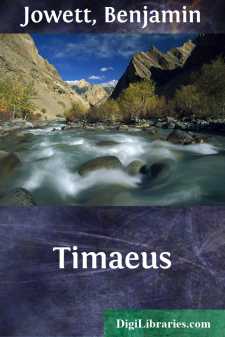Categories
- Antiques & Collectibles 13
- Architecture 36
- Art 48
- Bibles 22
- Biography & Autobiography 813
- Body, Mind & Spirit 142
- Business & Economics 28
- Children's Books 15
- Children's Fiction 12
- Computers 4
- Cooking 94
- Crafts & Hobbies 4
- Drama 346
- Education 46
- Family & Relationships 57
- Fiction 11828
- Games 19
- Gardening 17
- Health & Fitness 34
- History 1377
- House & Home 1
- Humor 147
- Juvenile Fiction 1873
- Juvenile Nonfiction 202
- Language Arts & Disciplines 88
- Law 16
- Literary Collections 686
- Literary Criticism 179
- Mathematics 13
- Medical 41
- Music 40
- Nature 179
- Non-Classifiable 1768
- Performing Arts 7
- Periodicals 1453
- Philosophy 64
- Photography 2
- Poetry 896
- Political Science 203
- Psychology 42
- Reference 154
- Religion 513
- Science 126
- Self-Help 84
- Social Science 81
- Sports & Recreation 34
- Study Aids 3
- Technology & Engineering 59
- Transportation 23
- Travel 463
- True Crime 29
Lysis
by: Benjamin Jowett
Description:
Excerpt
INTRODUCTION.
No answer is given in the Lysis to the question, 'What is Friendship?' any more than in the Charmides to the question, 'What is Temperance?' There are several resemblances in the two Dialogues: the same youthfulness and sense of beauty pervades both of them; they are alike rich in the description of Greek life. The question is again raised of the relation of knowledge to virtue and good, which also recurs in the Laches; and Socrates appears again as the elder friend of the two boys, Lysis and Menexenus. In the Charmides, as also in the Laches, he is described as middle-aged; in the Lysis he is advanced in years.
The Dialogue consists of two scenes or conversations which seem to have no relation to each other. The first is a conversation between Socrates and Lysis, who, like Charmides, is an Athenian youth of noble descent and of great beauty, goodness, and intelligence: this is carried on in the absence of Menexenus, who is called away to take part in a sacrifice. Socrates asks Lysis whether his father and mother do not love him very much? 'To be sure they do.' 'Then of course they allow him to do exactly as he likes.' 'Of course not: the very slaves have more liberty than he has.' 'But how is this?' 'The reason is that he is not old enough.' 'No; the real reason is that he is not wise enough: for are there not some things which he is allowed to do, although he is not allowed to do others?' 'Yes, because he knows them, and does not know the others.' This leads to the conclusion that all men everywhere will trust him in what he knows, but not in what he does not know; for in such matters he will be unprofitable to them, and do them no good. And no one will love him, if he does them no good; and he can only do them good by knowledge; and as he is still without knowledge, he can have as yet no conceit of knowledge. In this manner Socrates reads a lesson to Hippothales, the foolish lover of Lysis, respecting the style of conversation which he should address to his beloved.
After the return of Menexenus, Socrates, at the request of Lysis, asks him a new question: 'What is friendship? You, Menexenus, who have a friend already, can tell me, who am always longing to find one, what is the secret of this great blessing.'
When one man loves another, which is the friend—he who loves, or he who is loved? Or are both friends? From the first of these suppositions they are driven to the second; and from the second to the third; and neither the two boys nor Socrates are satisfied with any of the three or with all of them. Socrates turns to the poets, who affirm that God brings like to like (Homer), and to philosophers (Empedocles), who also assert that like is the friend of like. But the bad are not friends, for they are not even like themselves, and still less are they like one another. And the good have no need of one another, and therefore do not care about one another. Moreover there are others who say that likeness is a cause of aversion, and unlikeness of love and friendship; and they too adduce the authority of poets and philosophers in support of their doctrines; for Hesiod says that 'potter is jealous of potter, bard of bard;' and subtle doctors tell us that 'moist is the friend of dry, hot of cold,' and the like....












